 Follow @reese_terry
Follow @reese_terry
Keynote Speaker: Dr. Terry Reese - reeset@gmail.com
Session Time: 10:00 - 11:00 a.m. CST
Keynote Session Title: Smart Cataloging: Beginning the Move from Batch Processing to Automated Classification
Session Description: As libraries seek out new ways to support discovery and reuse of collections and library data, the creation and curation of high-quality metadata is becoming even more vital. Meanwhile, the constant increase in data that libraries receive from disparate sources in various levels of quality coupled with the notorious underfunding of metadata departments makes the metadata librarian’s need to constantly seek out and research new and innovative ways to process and manage that constant stream of data more important than ever. To be successful, libraries in general will need to seek to leverage the wide array of open data sources to improve not only traditional workflows but to also begin leveraging more intelligent services or algorithms for the purposes of automated classification and no-touch cataloging services.
Speaker Bio: Terry Reese serves as the Head of Digital Initiatives and Infrastructure Support for The Ohio State University Libraries (OSUL). During his career in Libraries, Terry has worked in numerous positions in the library: from interlibrary loan, reference and instruction, processing, cataloging, and finally digital initiatives. While at Oregon State University, Terry held the prestigious Gray Family Chair for Innovative Library Services and led various grants and open source projects related to discovery and findability of resources.
Since April 2013, Terry has called Columbus home, working with OSUL to redevelop their digital library infrastructure, and re-imagine the Library not only as a destination for collections and services, but as a digital platform that can both support and generate new research.
Terry's current research is focused on the ways in which libraries can leverage semantic web techniques to transform legacy library metadata into something new, and exciting. This work intersects with his development of MarcEdit, a metadata suite used by many in the library community. The project serves both as a platform to conduct research related to metadata reconciliation and the intersections of semantic data and library data, as well as a platform for re-imagining library metadata workflows and processing.
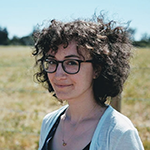
Speakers: Sarah Lindsey - sjlindse@ucsc.edu, and Lisa Wong - tyleet@ucsc.edu
Session Time: 11:15 - 12:00 p.m. CST
Session Title: Automating Workflows Using Different Types of Software
Session Description: Many workflows in a technical services department must be performed weekly or monthly without a great deal of variation. Automating these processes enable staff to be more efficient with their time and allow departments to shift their focus from rote tasks to more dynamic projects. We will present three specific examples of workflow automation that will be of interest to the general technical services library community: how to record steps in OpenRefine to automate the preparation of ISBN holdings file for a vendor; how our library has employed Perl scripts and MarcEdit to automate the complex processing our consortial system records required before being uploaded into our catalog; and how we have employed analytics in our local Alma system to automate the process of locating and suppressing of expired PDA records each month.
Sarah Lindsey Bio: Sarah Lindsey is the head of the Metadata Services Department and the Acquisitions Librarian at University of California Santa Cruz. She holds a Masters of Library and Information Science from Simmons College.
Lisa Wong Bio: Lisa Wong is the Metadata Systems Analyst at University of California Santa Cruz. She has worked in libraries for the last 15 years, before which she worked extensively as a software engineer.
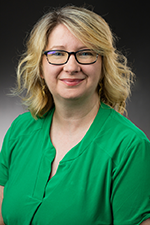 Follow @ajblack909
Follow @ajblack909
Speaker: Angela Black - ablack9@atu.edu
Session Time: 11:15 - 12:00 p.m. CST
Session Title: From Amazon to Acquisitions: Navigating a Turbulent Workflow
Session Description: Ordering materials from Amazon.com can provide libraries big savings in time and money. However, those savings often dry up during the process to manually add order and item metadata into library catalogs and existing acquisition workflows. This presentation will document how to leverage the analytic tools of Amazon Business Services as well as the cataloging software, MARCEdit, to create custom, embedded order data for a faster and more streamlined flow of Amazon.com purchases into your library management system.
Speaker Bio: Angela Black is the Technical Services Librarian at the Ross Pendergraft Library at Arkansas Tech University in Russellville, Arkansas. Since 2012, she has been working as the cataloging librarian for monographs, and in 2018, took over monographs acquisitions, where she has been tinkering with the workflows ever since. Angela serves as the collection development and instructional liaison for four university departments, performs reference services, and provides procedures and support for their library management software, Alma.
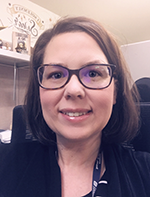 Follow @KristyLWhite333
Follow @KristyLWhite333
Speaker: Kristy White - whitek9@duq.edu
Session Time: 11:15 - 12:00 p.m. CST
Session Title: Process Mapping, Information Management, and Return on Investment in Technical Services
Session Description: Technical services are intrinsic to the everchanging organizational structures of libraries in the 21st century. Consequently, understanding workflows in technical services, assessing their adequacy to the goals of the library/organization, and adapting to new organizational designs are all part and parcel of constructing an effective and efficient technical services (TS) department.
In the session, I will describe the High Performance management style of W. Edwards Deming, focusing on what is generally called the "Deming Cycle," a style of management which requires entire organizational teams – not merely the manager – to be responsible for the ongoing work of improving organizational efficiency. Deming offered a simplified version of this Cycle, commonly called PDSA:
- PLAN: Design or revise business process components to improve results
- DO: Implement the plan and measure its performance
- STUDY: Assess the measurements and report the results to decision makers
- ACT: Decide on changes needed to improve the process
Second, I will describe the process of mapping workflows, focusing on how process mapping highlights waste and allows those who use them to better understand the process, make workflow improvements, and maintain sustainability. These visual representations of workflows allow us to see where a process might be too cumbersome, to find a simpler solution along with gaining a better understanding of the process, and to not only gain expertise in a subject or process but to be able to explain the process to others as well.
Third, I will suggest that linking workflow mapping to Deming’s larger understanding of management style has a number of potentially positive consequences for technical services departments. Among those positive consequences are: (1) A departmental vision which moves from a hierarchical to a more egalitarian management style; (2) Increased departmental effectiveness and efficiency due to input by “on the ground” members; (3) Making workflows a part of a larger management scheme better justifies the return on investment of technical services departments.
I will illustrate these points by looking directly at an example of an acquisitions department.
Speaker Bio: Kristy White is Acquisitions Librarian and faculty member at Duquesne University. She has more than 20 years library experience, at both academic institutions and corporate law firm libraries. Kristy holds two master's degrees: Library Science from Clarion University and Law and Public Policy from California University of Pennsylvania. Her primary research interests include organizational and management theories in libraries, workflow management, contract negotiations and data privacy and analysis. She has a chapter, Process Mapping and High Performance Management in Technical Services, currently in process for the ALAO's upcoming book "Technical Services in the 21st Century Library - Advances in Library Administration and Organization".
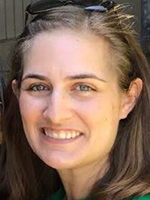
Speakers: Stacey Wolf - stacey.wolf@unt.edu, Catherine Sassen - catherine.sassen@unt.edu, Jeremy Berg - jeremy.berg@unt.edu, Adam Baron - adam.baron@unt.edu
Session Time: 12:15 - 1:00 p.m. CST
Session Title: E-Resource Cataloging Challenges and Solutions
Session Description: Editing files of e-resource bibliographic records is a challenge for many catalogers because of record quality concerns and the relentless flow of incoming files to be loaded. When faced with a bewildering array of errors in a file, a cataloger may have difficulty deciding on the appropriate level of record quality and how to achieve it. In this presentation, catalogers from a large academic library will share how they make e-resources discoverable through their approach to record quality assessment, batch editing with regular expressions in MarcEdit, and record load tracking. The presenters will also provide handouts with helpful information about their processes and procedures.
Stacy Wolf Bio: Stacey Wolf is the cataloging and metadata librarian at the University of North Texas. She specializes in batch editing e-resource records, juvenile cataloging, and authority control. She is currently leading the effort to join forces with vendor-provided authority control, cleaning up the catalog and getting the most out of the services offered. Stacey loves efficiency, order, and a challenge. She enjoys crime dramas, cooking and puzzle games when her two year old twins give her some free time; so her life has been mostly Muppet Babies, Paw Patrol, and potty training lately.
Catherine Sassen Bio: Dr. Catherine Sassen is Principal Catalog Librarian at the University of North Texas. She has published and presented on cataloging, indexing, assessment, career development, and mentoring.
Kevin Yanowski Bio: Kevin Yanowski is the Catalog Management Librarian at the University of North Texas and has been working in libraries since 2015. When he is not untangling the quagmire of complicated record editing, his research interests include leadership in libraries, cataloging unique collections, and how users interact with library catalogs. Additionally, Kevin loves supporting important causes therefore, he is heavily involved with the Library Collective as well as the UNT Faculty Senate.
Jeremy Berg Bio: Jeremy Berg is a cataloging librarian at the University of North Texas. He has worked in cataloging for ten years and currently specializes in ebooks and electronic theses and dissertations.
Adam Baron Bio: Adam Baron is the Head of Cataloging and Metadata Services at the University of North Texas. As part of his responsibilities, he oversees the overall management of e-resource cataloging.
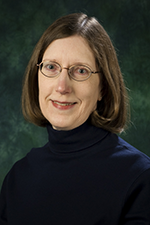 |
 |
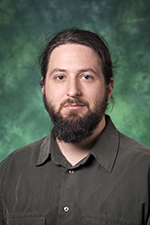 |
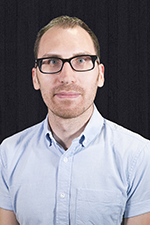 |
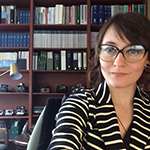 Follow @rachel_catlady
Follow @rachel_catlady
Speaker: Rachel Evans - rsevans@uga.edu
Session Time: 12:15 - 1:00 p.m. CST
Session Title: Apps for Actionable Workflows: Tools to Stay In the Loop and On Top of Tasks
Session Description: No matter what member of the team you are or what type of library you are in - be it electronic resources manager, cataloger, head of acquisitions, ILS or systems administrator, or even repository coordinator - getting things done and meeting goals depends largely on how you communicate with one another and how you handle your time. Meeting goals and deadlines on both big and small projects in addition to your personal tasks can be achieved less painfully by making effective use of a few on point tools. This session will use the presenter's preferred platforms to show specific examples of how to manage a variety of workflows using three different applications to (1) tackle business as usual, (2) short and long term work, and (3) major special projects. It will share how each can be used to generate valuable documentation, work in collaboration with others, and automate reminders for repeating tasks. The apps that will be compared for pros, cons, and their integration with one another or other valuable programs are:
- Slack
- KanbanFlow
- Trello
- Google Suite
Speaker Bio: Rachel S. Evans serves as the metadata librarian in Collection Services at the University of Georgia School of Law's Alexander Campbell King Law Library. In her current role, she helps to maintain library web services including the online catalog and other electronic resources. Rachel previously served as web coordinator and digital media specialist for I.T. Services after joining the School of Law in July 2012. Evans regularly presents at library, technology and web related conferences. She is active in multiple interest groups for the Georgia Library Association and serves on the Education and Publications Committee of the Southeastern Chapter of the American Association of Law Libraries as handbook editor. In 2019 she began contributing to the Technical Services, Online Bibliographic Services, and Computing Services Special Interest Sections of the American Association of Law Libraries Blog Committees and Editorial Board. Rachel enjoys writing articles for the national magazine Computers in Libraries and reviewing titles for Library Journal. Rachel has held a variety of roles in libraries including LaGrange College's Lewis Library, and Troup and Oglethorpe county public libraries. She earned a double undergraduate degree in art (graphic design) and music (technology and composition) from LaGrange College, and a Master of Science in Library and Information Studies from Florida State University.
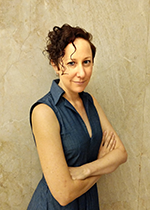 Follow @pirateymonkey
Follow @pirateymonkey
Speaker: Kelly Revak - kere@loc.gov
Session Time: 12:15 - 1:00 p.m. CST
Session Title: From Fieldworker to MARC Record: Transforming Messy Data into Library of Congress Catalog Records
Session Description: For the American Folklife Center's (AFC) Occupational Folklife Project, an online metadata form allowed the AFC archivists to receive and manage large amounts of fieldwork data from geographically diverse fieldworkers. Use of this tool ensured a level of consistency in submissions by utilizing controlled vocabularies, requiring core fields, and providing a systematic and uniform labeling system which auto populates to avoid potential numbering issues. One of my first assignments at AFC was to catalog the first OFP collection. I quickly recognized that the individual cataloging and “cut-and-paste” transfer of data from the database into catalog records was one of the most time consuming aspects of the project. Following this first effort, I proposed and developed a tool to enable this work at scale. Using XML transformation scripts, I created a suite of tools to convert raw fieldworker data into fully formed and valid MARC records ready for bulk ingest into the ILS. The system includes assigning LCCNs, cleaning/reformatting data into MARC valid formats, and generating handles. The entire process of ILS-ready MARC record creation for an OFP collection, which took more than 3 months for the manually cataloged collection, can now be completed in less than 10 minutes. This represents roughly a 2000% increase in efficiency for this project. I will discuss development of this transformation, and how it has been used to clear 10 years of backlog of uncatalogued oral history materials.
Speaker Bio: Kelly Revak is a folklorist and archivist at the American Folklife Center (AFC), Library of Congress. She has a master's degree in Folklore and a bachelor's degree in Anthropology from the University of California, Berkeley. At AFC, Kelly leads efforts to extract, map and transform data for various cataloging and access initiatives including increasing tribal access to AFC's Native American recordings, cataloging materials for AFC's Occupational Folklife Project and Civil Rights History Project, and updating the AFS Ethnographic Thesaurus. She has also been leading a team to develop Library-wide templates and tools for the transition to EAD3.

Speaker: Rebecca French - frenchrb@jmu.edu
Session Time: 2:00 - 2:45 p.m. CST
Session Title: Small Steps Make Giant Leaps: An Incremental Approach to Technical Services Workflow Automation
Session Description: James Madison University Libraries' workflow for distributing its Special Collections finding aids to various discovery platforms historically involved a significant amount of manual data entry and hand-encoding. Through a series of small steps, we have been gradually improving this process by automating select tasks. I will share different iterations of our workflow, the automated solutions we've put into place, and the tools and technologies used, including XSLTs, APIs, and Spaceport, a custom Python app. As evidenced through the efficiencies, staff excitement, and other benefits we've observed, automation has transformed a previously tedious process while also facilitating the completion of other related projects. Our experience suggests a number of advantages to taking an incremental approach to technical services workflow automation projects.
Speaker Bio: Rebecca B. French is the Metadata Analyst Librarian at James Madison University, where she develops workflows and tools for efficiently creating, manipulating, transforming, and analyzing metadata at scale. Her work spans traditional MARC cataloging, e-resource batch loading, and metadata for archival and digital collections. Rebecca was previously a music cataloger at James Madison University and at Indiana University's William and Gayle Cook Music Library. She holds a BA from The College of William and Mary and an MLS with a specialization in music librarianship from Indiana University.
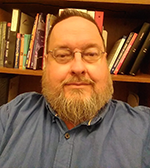
Speaker: John Sandstrom - jsand713@nmsu.edu
Session Time: 2:00 - 2:45 p.m. CST
Session Title: Smoothing Out the Licensing and Contracting Workflow
Session Description: Regardless of where it is done, Acquisitions, Serials, or the Administrative suite, negotiating and approving licenses and contracts are a challenge. And that is just the beginning. In this session, Dr. John Sandstrom explains why negotiating licenses and contracts is important, ways of tracking license and contract compliance, and sharing his ideas on ways to smooth out the licensing and contracting workflow.
Speaker Bio: Dr. John Sandstrom has worked in Acquisitions and Collection Development for most of his 30+ years in libraries. He has worked in academic, public, and special libraries as well as a few years on the vendor side of the table. In addition to his MLIS, he has a Master of Public Administration and an Educational Doctorate in Leadership and Administration. He brings extensive experience in writing, negotiating, and tracking a variety of licenses and contracts ranging from individual contracts for story time performers to multi-million dollar contracts for library materials.
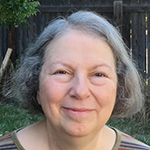 Follow @pat2pattern
Follow @pat2pattern
Speaker: Pat Wagner - pat@patternresearch.com
Session Time: 2:00 - 2:45 p.m. CST
Session Title: You Love the New Productivity Tools, But How Do You Win Over the Rest of Your Library Co-Workers?
Session Description: You want your library's personnel to be as excited as you are about the proposed new software and more efficient protocols, but how about first winning their acceptance and support? Are you being honest from the get-go about timelines and budgets? Addressing concerns about adding more work to their busy days without anything being removed? Expectations of the costs and benefits of the old versus the new and how long it will take to move to the new systems? And how will success be evaluated? Learn how to manage people–your library’s most valuable asset–during times of change and earn their trust as you help them leverage productivity.
Speaker Bio: Pat Wagner has been a library trainer and consultant since 1978. She focuses on the skills needed to support the success of libraries and allied institutions, such as higher education, schools, and government agencies. Pat is known for good-humored and practical programs and presents on personnel, project management, leadership, marketing, ethics, and related topics. Her experience spans small rural storefront libraries to some of the largest academic and urban library districts in the US.
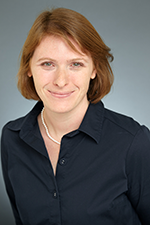 Follow @sarahemlin
Follow @sarahemlin
Speaker: Sarah Lin - sarah.lin@rstudio.com
Session Time: 3:00 - 3:45 p.m. CST
Session Title: Transform Your Mindset: TS Librarians as Data Scientists
Session Description: The standard library school cliche is that we went so we didn't have to do any math! Yet with machine learning, deep learning, algorithms, text mining, programming languages, data science, data encoding, data transfer, and linked data pervasive in our personal and professional environments, our career futures hinge on our computational skills—skills we might think we don't have (or don’t want to have). This session suggests that Technical Services (TS) librarians, in particular, need to transform their thinking on this issue, and guides them through the process of realizing they are already doing most of these things. Data science is a good example of basic skills TS librarians are already primed with; translating those fundamentals into data science methodologies will transform data manipulation and analysis in libraries. Armed with confidence, attendees will leave ready to fill in the knowledge gaps they do have to be the best caretakers and advocates for their libraries' data.
Speaker Bio: Sarah Lin is currently the Information Architect & Digital Librarian at RStudio, a data science software company. She has previously been a bindery clerk, a serials librarian, an indexer, a technical services librarian and a content manager in academic, medical, legal and corporate libraries. Sarah believes that data literacy is the key to the future and that technical services librarians are the natural standard-bearers of this movement in the library community.
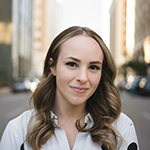 Follow @ESzkirp
Follow @ESzkirp
Speaker: Elizabeth Szkirpan - eszkirp@gmail.com
Session Time: 3:00 - 3:45 p.m. CST
Session Title: Work Smarter Not Harder: Project Management and Role Delineation at Tulsa Community College
Session Description: On the heels of a college-wide reorganization and the departure of a long-time cataloger, the Tulsa Community College Library needed to evaluate remaining technical services positions, and the roles that they would play in the library, as the demand for print materials waned and preparation for Cataloging 2.0 began. Beginning in 2016, separate projects designed for documentation and succession planning converged with modified project management techniques to evaluate workflows, role responsibilities, training, and documentation efforts. As a result, virtually every procedure within Technical Services has been evaluated, redesigned as needed, and re implemented.
Entering the fourth year, cataloging and processing turnaround time decreased by more than half from FY 2017-2018, delayed catalog maintenance was addressed and completed within a two-year time span, and troublesome collections were retrospectively cataloged. Meanwhile, team relationships improved, and the first complete Technical Services manual was compiled and made available to all library stakeholders during 2018.
This presentation will briefly outline the projects used to evaluate and improve Tulsa Community College's workflow and role delineation, as well as the project management techniques utilized within those projects. Additionally, processes and procedures evaluated and refined within the Technical Services team. Predictions about future projects and Cataloging 2.0 resulting from these changes will also be discussed.
Speaker Bio: Elizabeth, previously of Tulsa Community College, is a double-graduate of the University of Oklahoma, completing a Bachelors of Journalism with a focus on Professional Writing in 2014, and completing a Masters of Library and Information Studies with a focus on Academic Librarianship and Information Theory in 2017. She has recently been hired as the Director of Bibliographic Services at the University of Tulsa McFarlin Library.
Elizabeth has completed a variety of certificates, including a Certificate in Project Management from Tulsa Community College (TCC), a Certificate in Consumer Health Information Specialization (CHIS) from the Medical Library Association (MLA), and a Certificate in Disaster Information Specialization (DIS) from the Medical Library Association (MLA). Future education plans include obtaining a Doctor of Philosophy in Library and Information Studies with a focus on Technical Services history and changing roles.